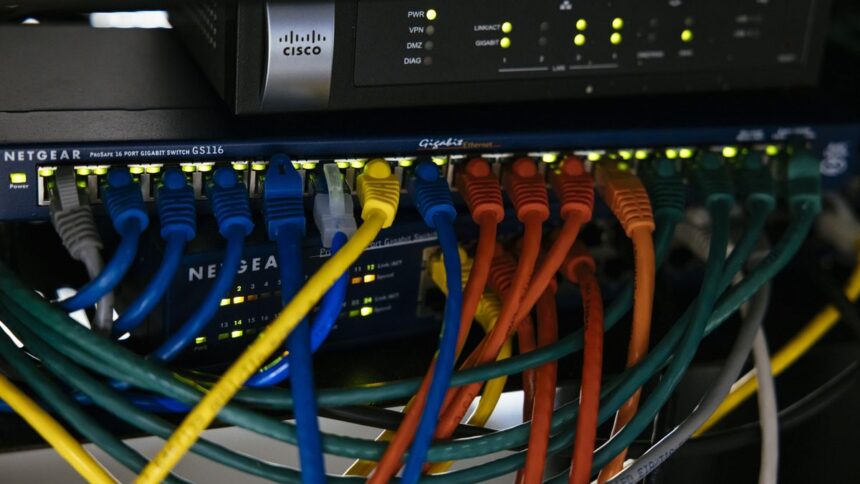A US appeals court docket has dominated that the Federal Communications Fee doesn’t have the authority to deliver again internet neutrality rules, and has thus put aside the “Safeguarding Order” that might have restored them.
In its ruling, the US Courtroom of Appeals for the Sixth Circuit declared that “broadband web service suppliers supply solely an ‘data service'” as outlined below present US regulation, “and due to this fact, the FCC lacks the statutory authority to impose its desired net-neutrality insurance policies by means of the ‘telecommunications service’ provision of the Communications Act.”
The act additionally doesn’t allow the FCC to categorise cell broadband as a “industrial cell service,” which might have granted it the power to impose internet neutrality rules on these providers. “We due to this fact grant the petitions for evaluation and put aside the FCC’s Safeguarding Order.”
Merely put, internet neutrality requires that every one site visitors be handled equally: It forbids web suppliers from, as an illustration, throttling site visitors from competing providers or prioritizing their very own. As one hypothetical instance, PC Gamer’s Wes Fenlon stated earlier this yr that Comcast, which owns NBC Common, might prioritize site visitors to the Peacock streaming service whereas degrading the standard of Netflix—not one thing that is occurred, to be clear, however in our present period of rampant company consolidation, not one thing past creativeness both.
Web neutrality has been on the heart of partisan politics within the US for years, however got here into full drive below new FCC guidelines launched in 2015 below the Obama administration. These guidelines had been rolled again in 2017 by the Trump administration, in an effort spearheaded by then-chairman Ajit Pai; in 2021, present US President Joe Biden signed an government order calling on the FCC to deliver them again once more. The FCC voted to take action in 2024.
Whereas the FCC has confronted down earlier challenges to internet neutrality rules, it was stymied this time by the lack of “Chevron deference,” which was struck down in 2024 by the US Supreme Courtroom. Established by the Supreme Courtroom in 1984, Chevron deference basically declared that courts ought to defer to federal companies when decoding their guidelines.
Because the BBC famous on the time, overturning Chevron was “a giant win for conservatives” as a result of it severely hamstrings the power of regulatory companies to make and implement guidelines; as an alternative, decoding the legality of these guidelines shall be left solely within the fingers of the courts, and topic to probably limitless barrages of challenges from well-funded particular pursuits.
The Sixth Circuit court docket particularly cited the absence of Chevron deference in its ruling, declaring that “not like previous challenges that the DC Circuit thought of below Chevron, we now not afford deference to the FCC’s studying of the statute.”
With the court docket ruling towards the FCC’s order, present Chairwoman Jessica Rosenworcel known as on Congress to “take up the cost for internet neutrality, and put open web ideas in federal regulation.” Commissioner Anna Gomez echoed that sentiment, saying that within the wake of the ruling, “Congress ought to act to finish this debate and to guard shoppers, promote competitors and financial management, and safe the integrity of our networks.”
Whether or not that can truly occur is anybody’s guess—the US authorities’s fingers will little question be full with different issues over the following few years—but it surely’s a digital certainty that the FCC will not pursue the matter additional: FCC commissioner Brendan Carr, who served as a authorized advisor to Ajit Pai in the course of the dismantling of internet neutrality rules and has been chosen by incoming president Donald Trump to exchange Rosenworcel as head of the FCC when her time period ends later this yr, known as the ruling “a superb win for the nation,” and stated “the work to unwind the Biden Administration’s regulatory overreach will proceed.”
Pai himself took a second to crow in regards to the ruling on X. “For a decade, I’ve argued that so-called ‘internet neutrality’ rules are illegal (to not point out pointless),” he wrote. “Right now, the Sixth Circuit held precisely that.
“It’s time for regulators and activists to surrender on this drained non-issue as soon as and for all and give attention to what truly issues to American shoppers—like bettering Web entry and selling on-line innovation.”








